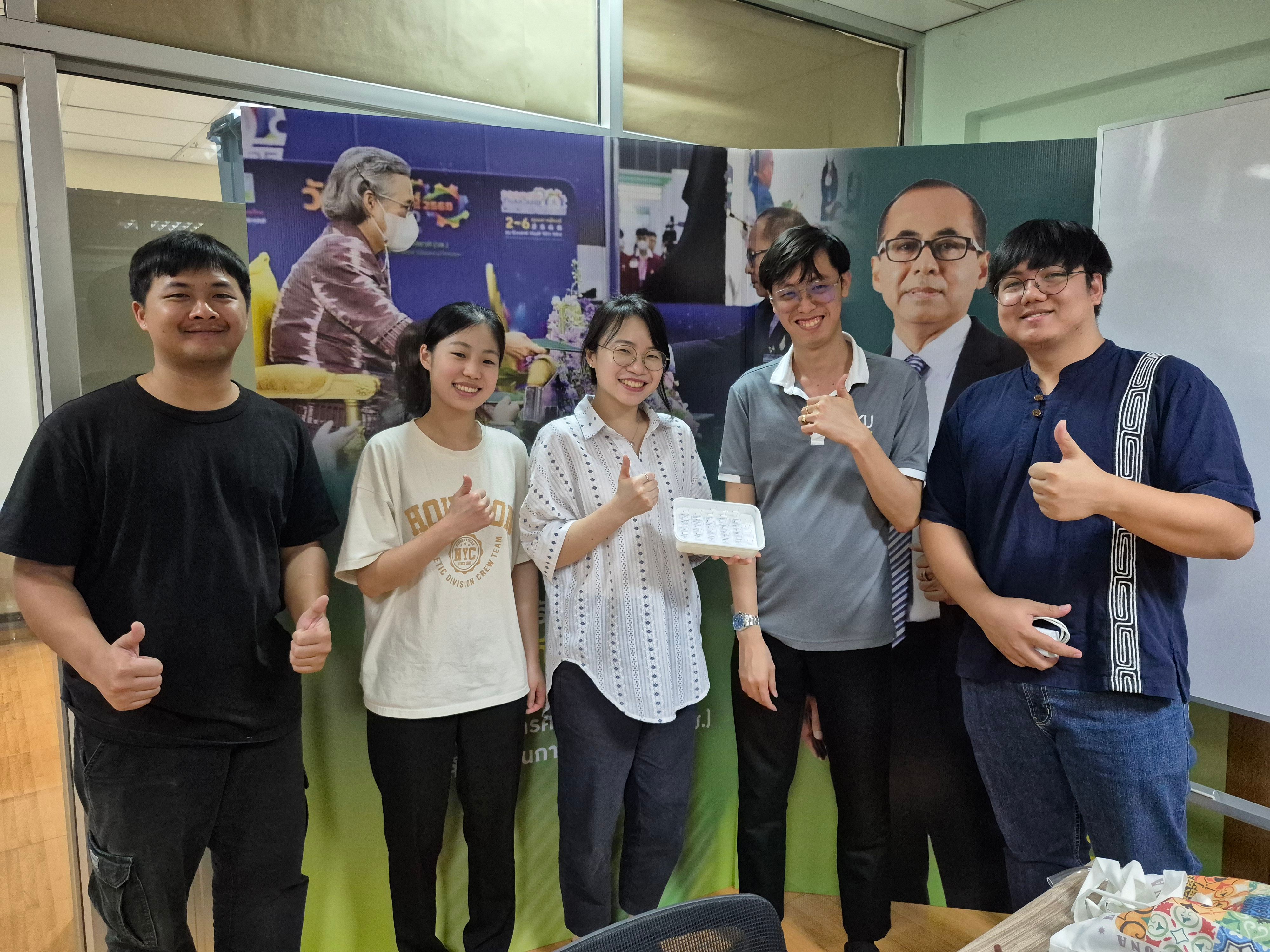 [Training] (February 19–20, 2025) Training Course on Mosquito Rearing and Identification (2/2)
[Training] (February 19–20, 2025) Training Course on Mosquito Rearing and Identification (2/2)
Day 2: Mastering Force Mating Techniques
The second day of training focused on force mating, a crucial technique for increasing mosquito populations in laboratory settings.
Mr. Max, a seasoned expert in Anopheles dirus force mating, demonstrated his precise handling of male and female mosquitoes. His years of experience were evident as he guided the trainees through each step with skillful precision.
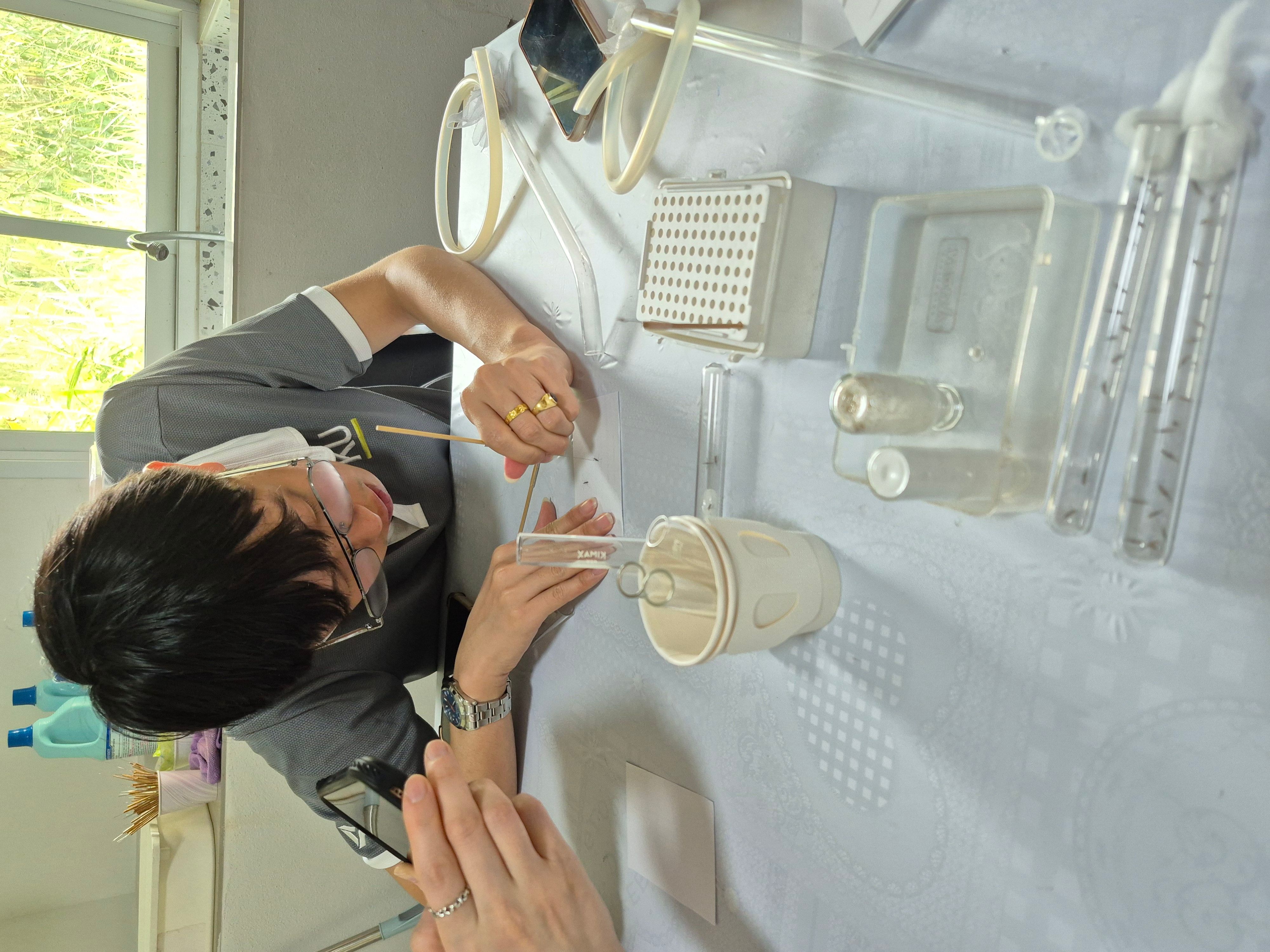
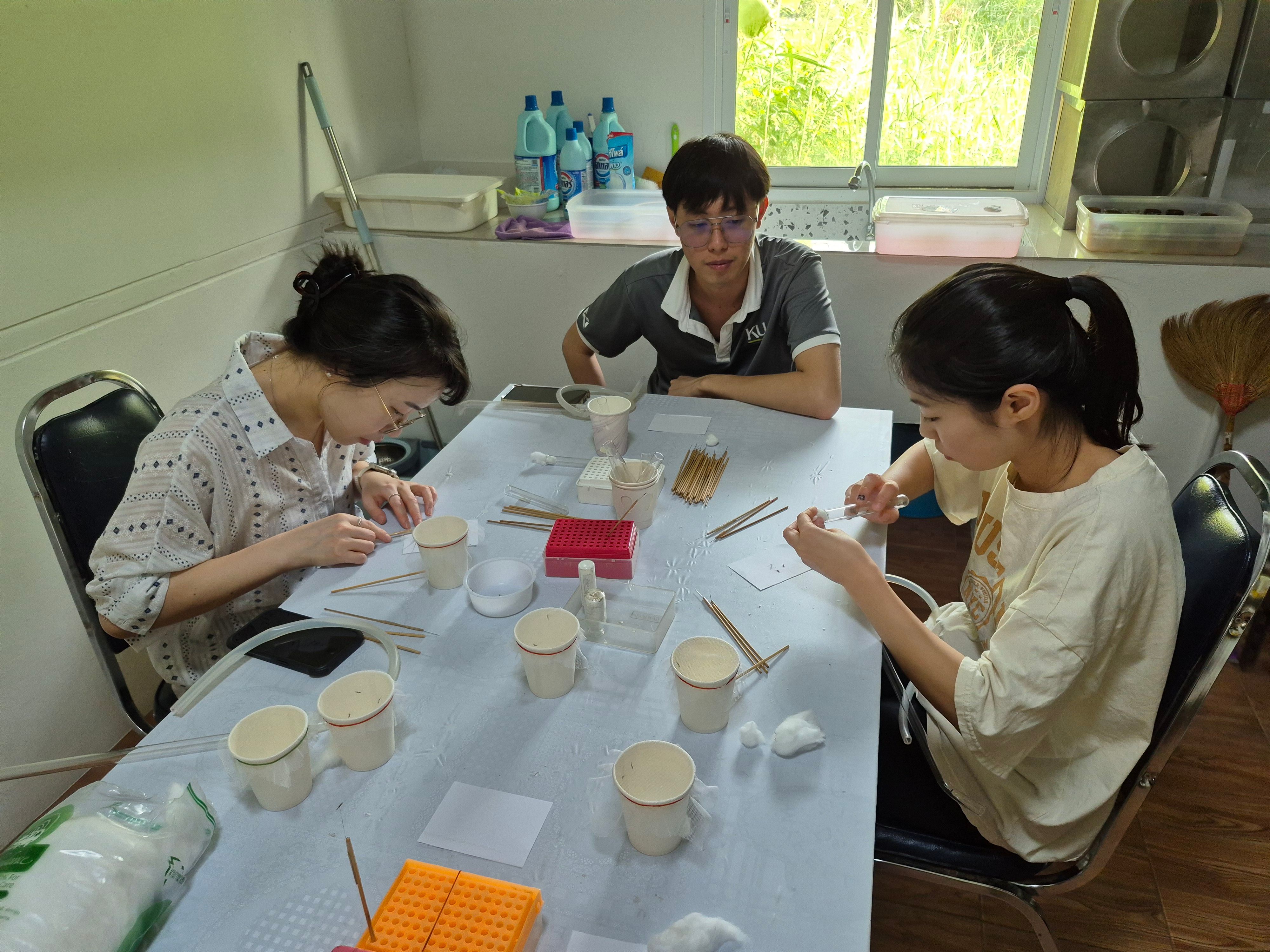 Following the demonstration, Dr. Lee and Prof. Kim had the opportunity to practice under Mr. Max’s in-person supervision. Impressively, Dr. Lee displayed exceptional stability and accuracy in handling mosquitoes, thanks to her extensive Ph.D. research experience. Prof. Kim, a seasoned medical entomologist with years of fieldwork, quickly grasped the technique and adapted to the process with ease.
Following the demonstration, Dr. Lee and Prof. Kim had the opportunity to practice under Mr. Max’s in-person supervision. Impressively, Dr. Lee displayed exceptional stability and accuracy in handling mosquitoes, thanks to her extensive Ph.D. research experience. Prof. Kim, a seasoned medical entomologist with years of fieldwork, quickly grasped the technique and adapted to the process with ease.
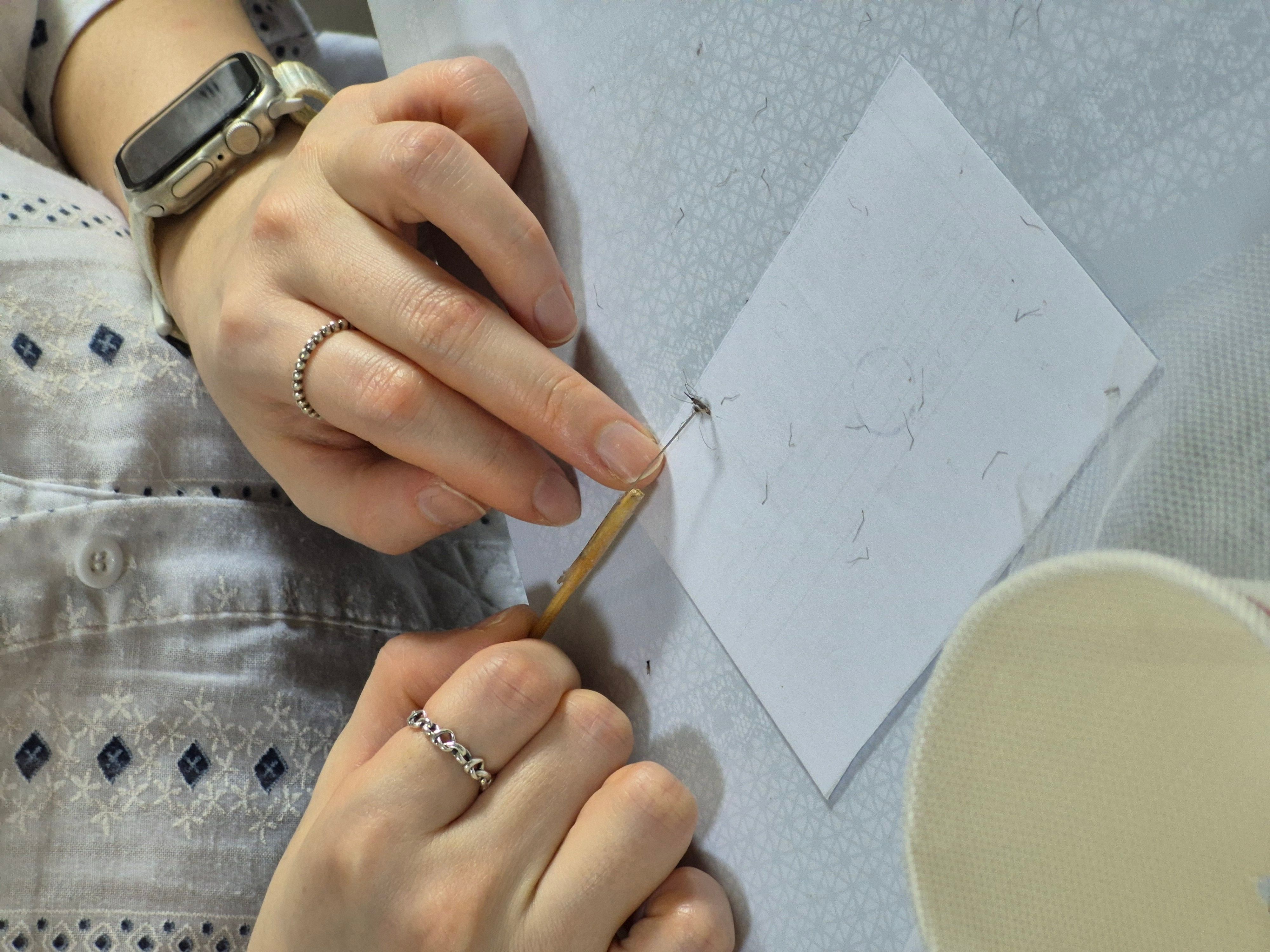
 During the morning session, both trainees practiced on approximately 100 female mosquitoes, using a higher number of males to improve success rates. Their enthusiasm was evident as they continued practicing even after lunch, determined to refine their skills. By the end of the session, they had successfully force-mated hundreds of females and monitored fecundity rates after blood feeding using an artificial feeding system with expired human blood.
During the morning session, both trainees practiced on approximately 100 female mosquitoes, using a higher number of males to improve success rates. Their enthusiasm was evident as they continued practicing even after lunch, determined to refine their skills. By the end of the session, they had successfully force-mated hundreds of females and monitored fecundity rates after blood feeding using an artificial feeding system with expired human blood.
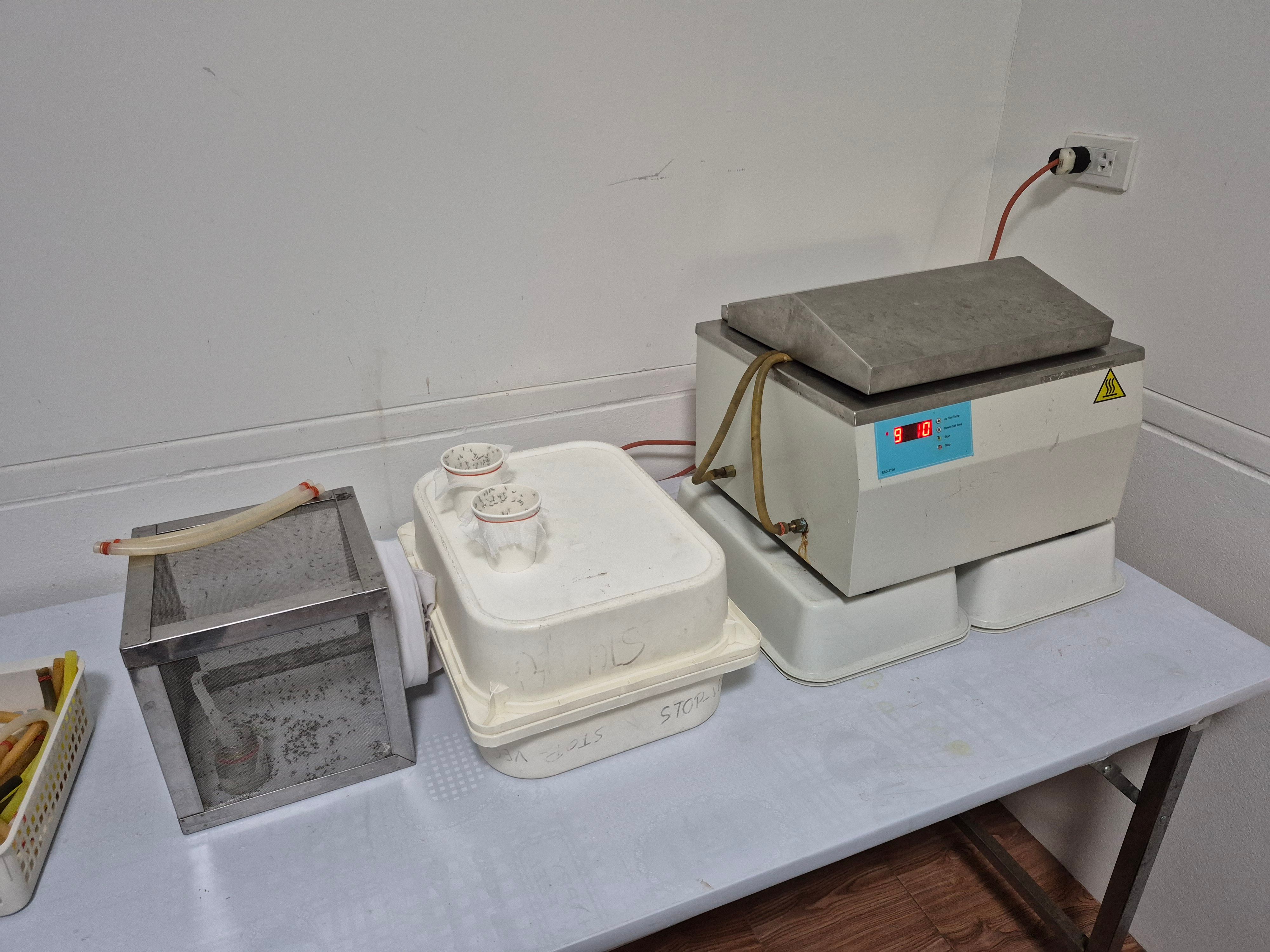
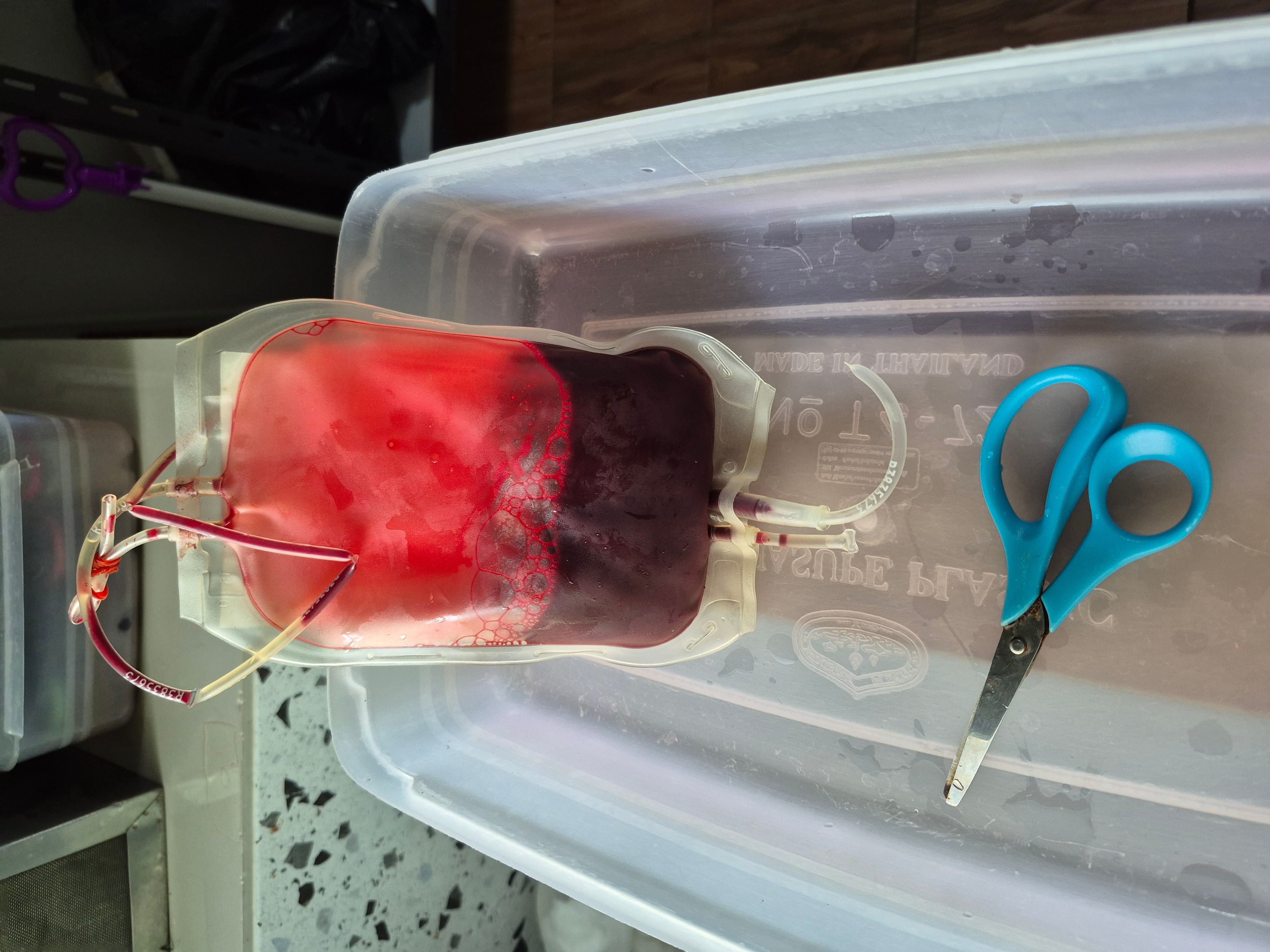 Applying New Skills and Concluding the Course
Applying New Skills and Concluding the Course
After an intensive day of training, Prof. Kim and Dr. Lee successfully acquired force mating skills that they can now implement in their own laboratory at Seoul National University. With summer field collections starting in early June, they will soon apply these techniques to boost mosquito populations in their lab.
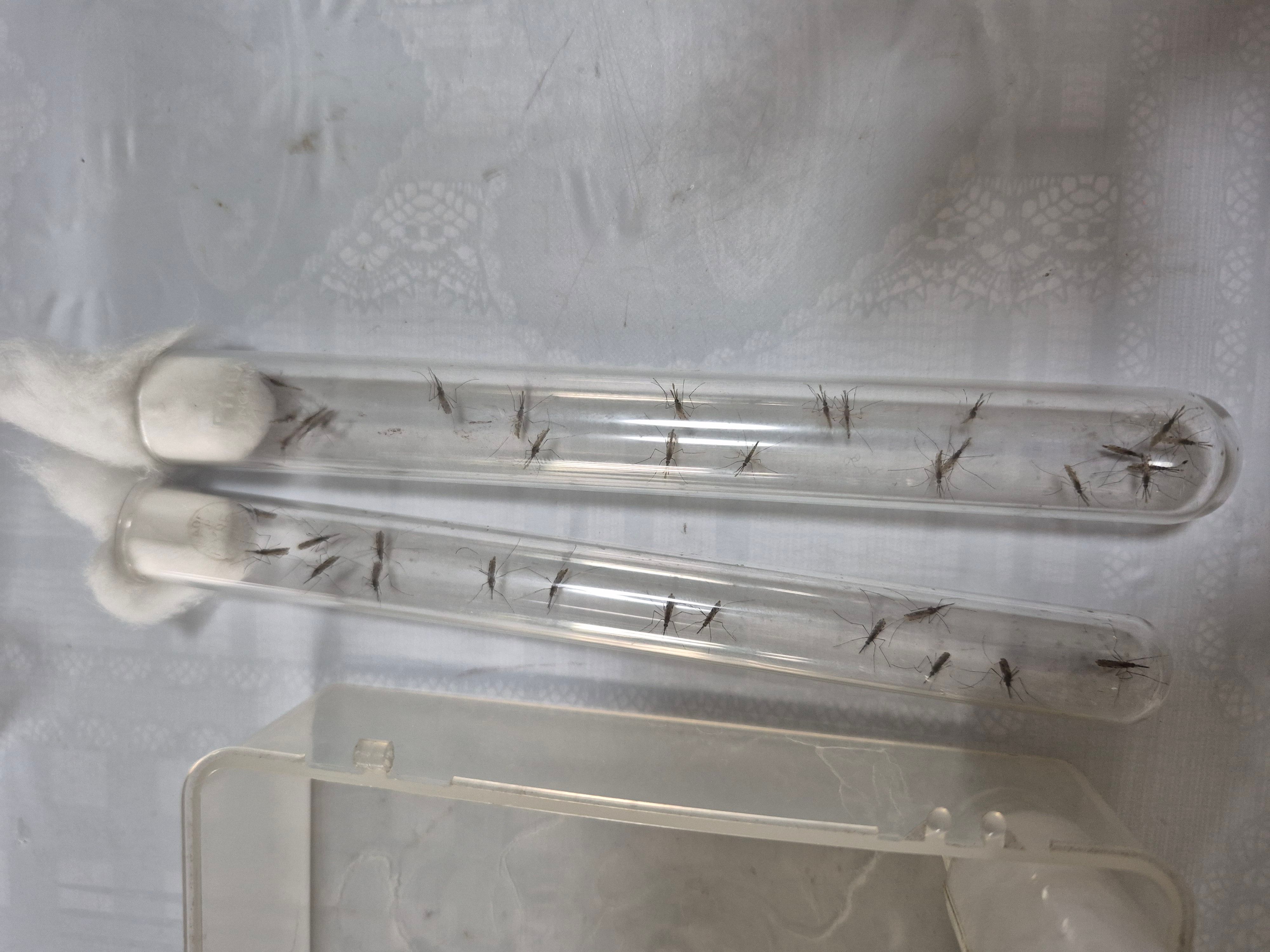
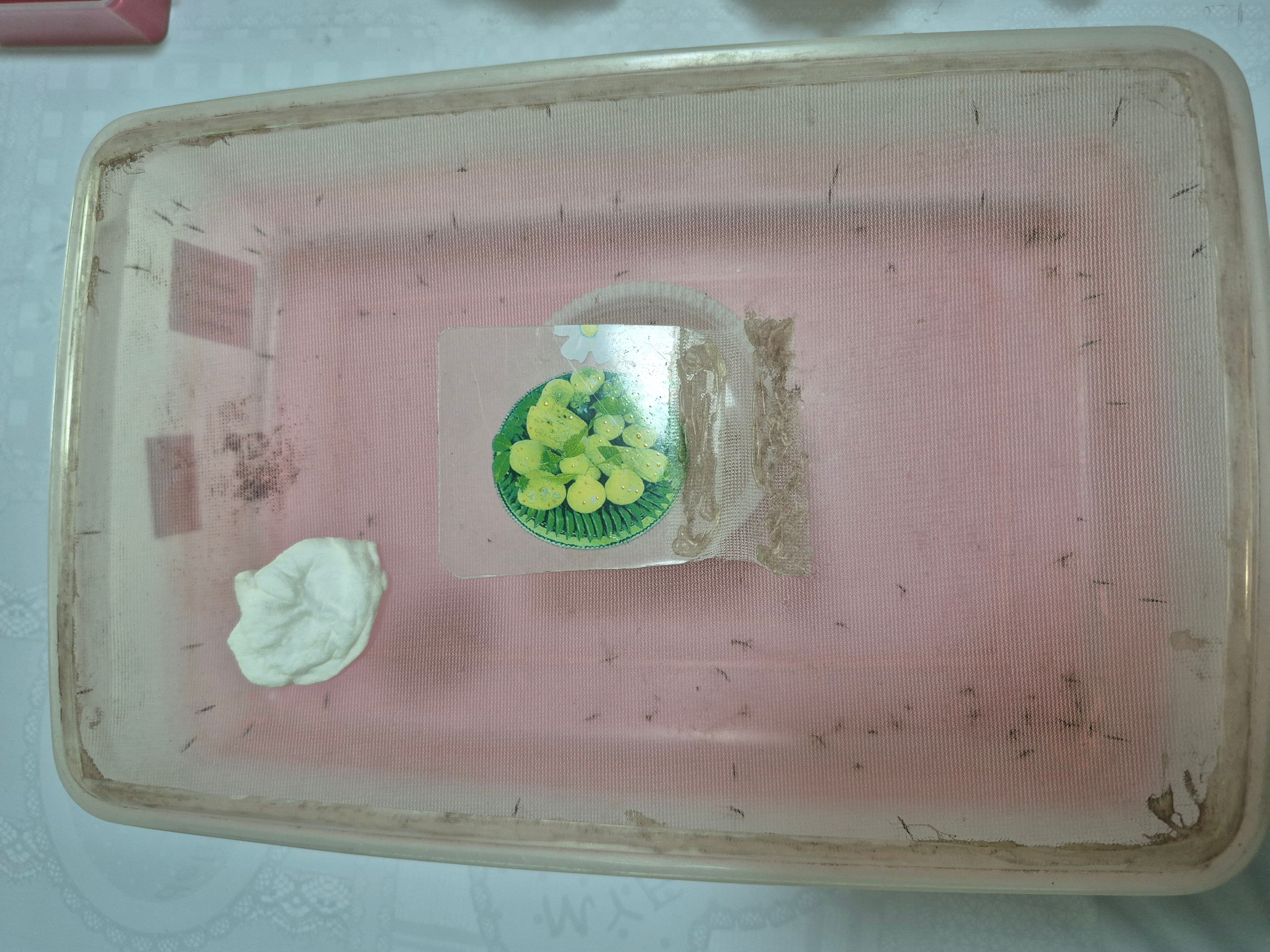
To wrap up the two-day course, participants conducted species identification of key Thai vector mosquitoes, including:
✅ Aedes aegypti
✅ Anopheles minimus
✅ Anopheles dirus
✅ Culex quinquefasciatus
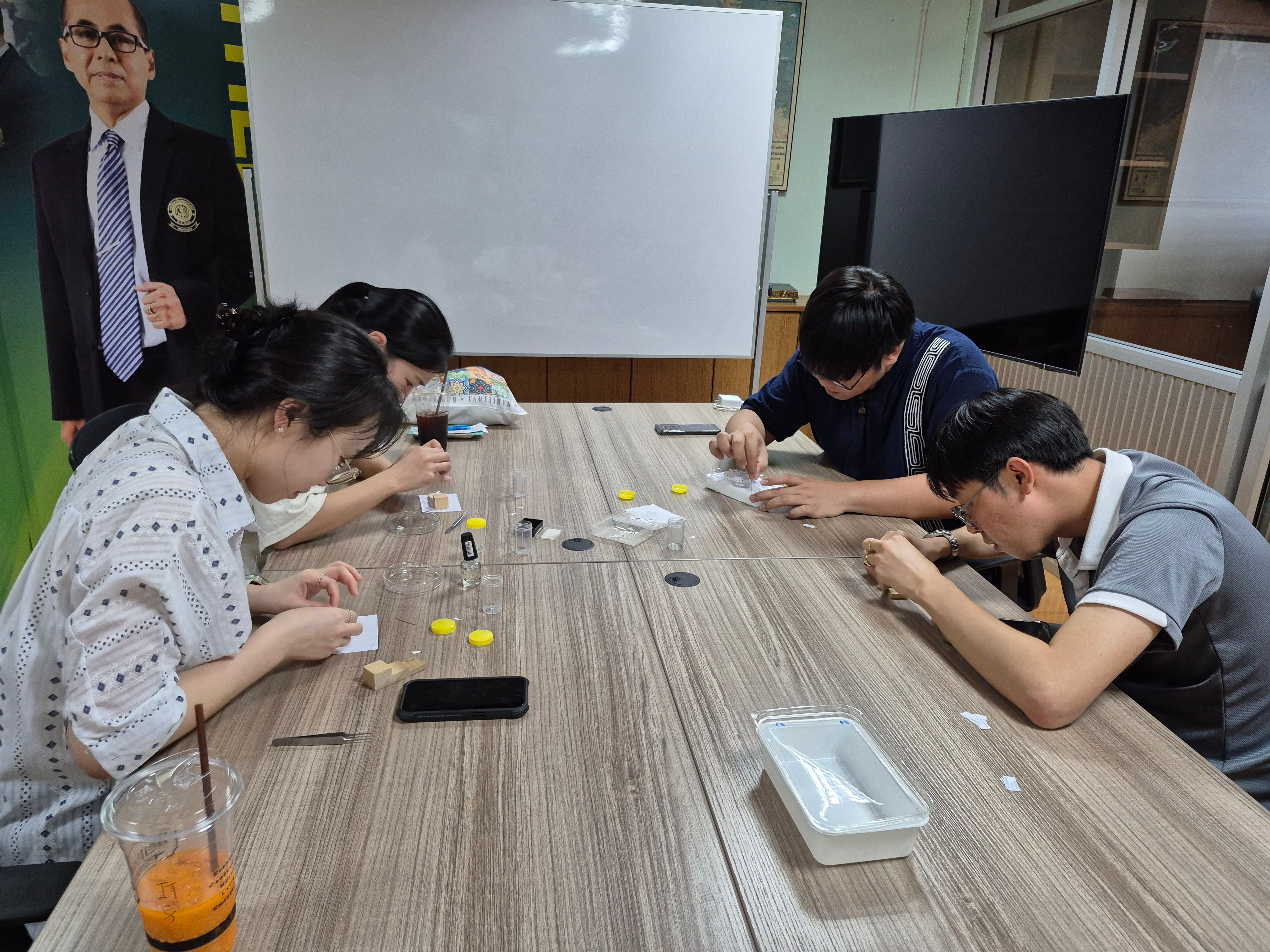 The session concluded with an open discussion, where trainers and trainees shared their reflections on the course. The atmosphere was filled with passion, dedication, and a shared commitment to advancing medical entomology. It was a touching moment—everyone could feel the energy and enthusiasm of the next generation of medical entomologists, who will likely become long-term research collaborators.
The session concluded with an open discussion, where trainers and trainees shared their reflections on the course. The atmosphere was filled with passion, dedication, and a shared commitment to advancing medical entomology. It was a touching moment—everyone could feel the energy and enthusiasm of the next generation of medical entomologists, who will likely become long-term research collaborators.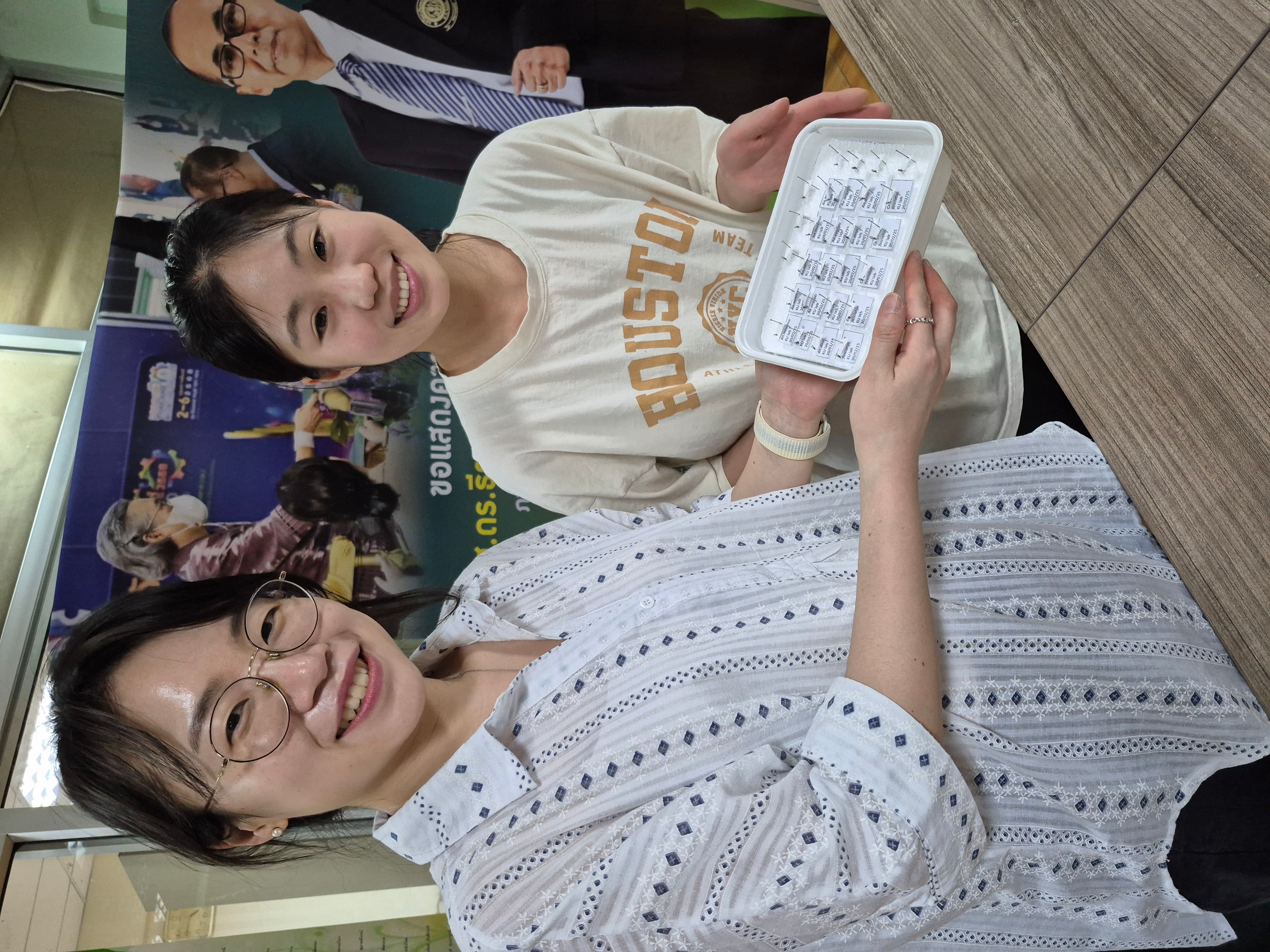
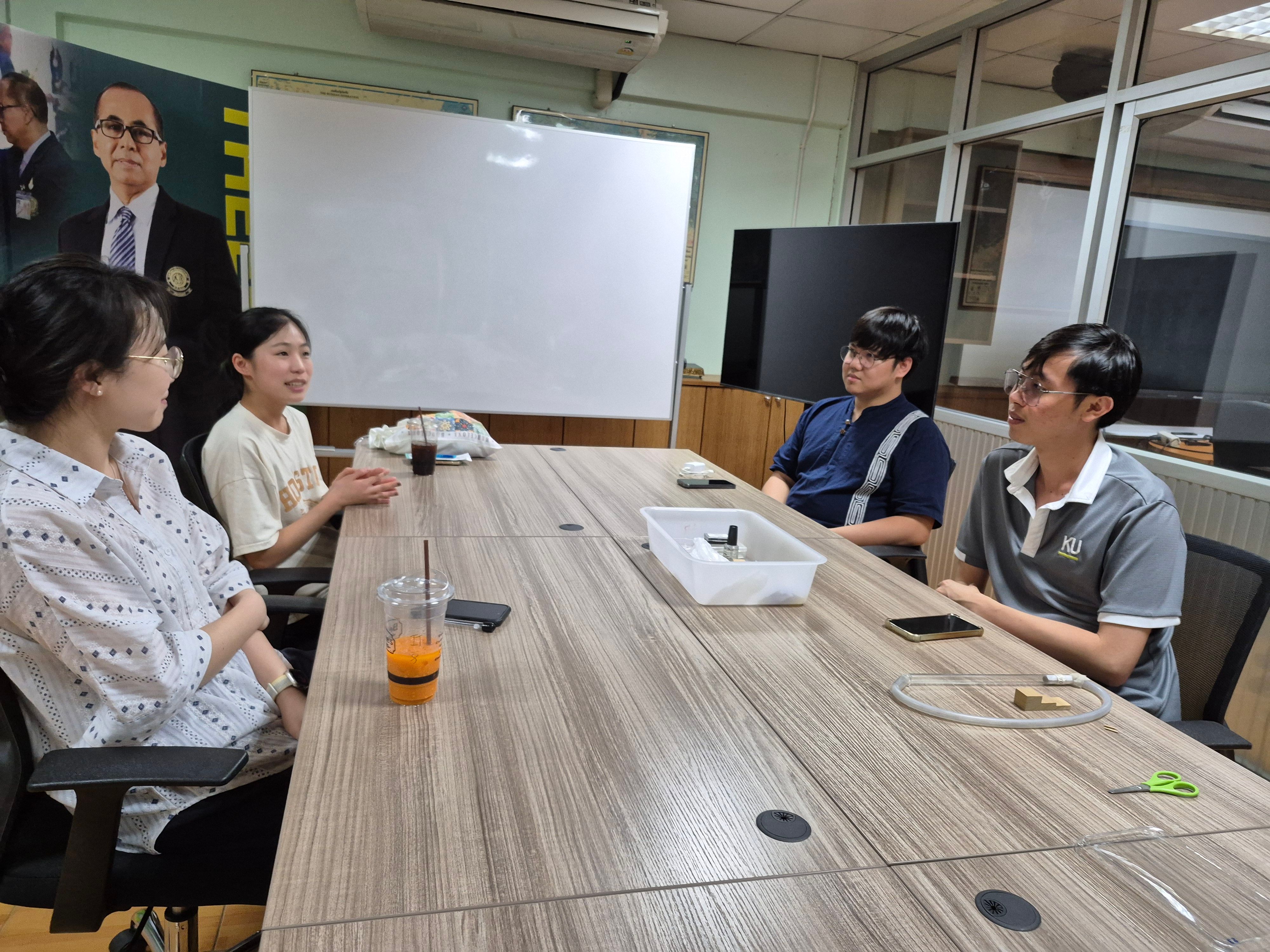 We sincerely thank the trainees for their hard work and enthusiasm in mosquito research, contributing to the protection of public health in both Korea and Thailand.
We sincerely thank the trainees for their hard work and enthusiasm in mosquito research, contributing to the protection of public health in both Korea and Thailand.
Hope to see you all again in the near future! Take care, and all the best!
